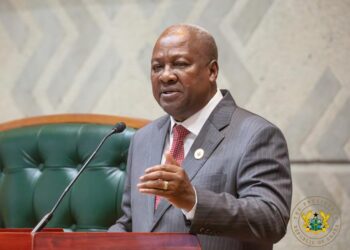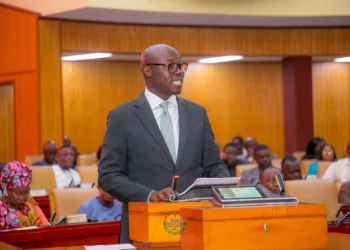Ghana’s inflation rate has seen a notable decline, dropping to 13.7 percent in June 2025 — the lowest level the country has recorded in over three years.
The announcement, made by Government Statistician Dr. Alhassan Iddrisu on Wednesday, July 2, reflects the sixth consecutive month of slowing inflation, providing renewed optimism for households and businesses grappling with rising living costs in recent years.
According to Dr. Iddrisu, the latest figure represents a significant fall from the 18.4 percent recorded in May and signals a clear shift in price stability across key sectors.
Food prices, which have been the primary driver of inflation in recent times, dropped considerably. Food inflation declined by 6.5 percentage points to 16.3 percent, down from 22.8 percent in May.
Non-food inflation also saw an improvement, easing to 11.4 percent from the previous 14.4 percent.
Despite the national progress, inflation remains uneven across regions.
The Upper West Region continues to face the highest inflation rate in the country at 32.3 percent, driven largely by soaring food and utility costs.
In contrast, the Bono Region recorded the lowest inflation rate at 8.4 percent.
The latest inflation figures also highlight key contributors to price increases, including rent, electricity tariffs, waste management, charcoal, and food staples such as yam.
Dr. Iddrisu urged policymakers to adopt more localized, targeted approaches to help address the stark regional disparities in inflation, warning that without tailored interventions, the national gains could be undermined.
The Ghana Statistical Service says the downward trend provides a foundation for government efforts to stabilise the economy, with the aim of achieving single-digit inflation by 2026.





































